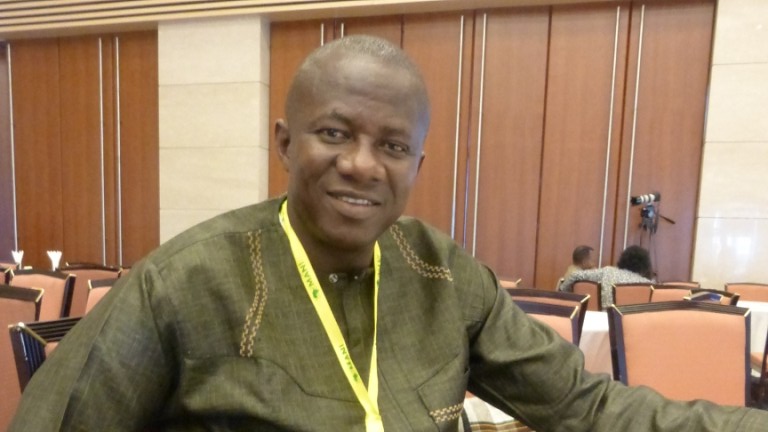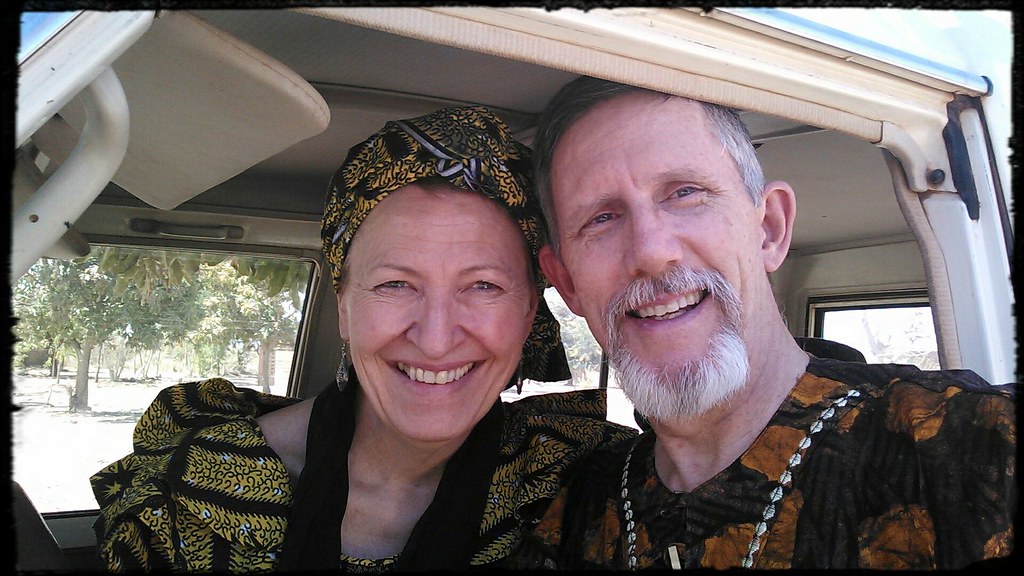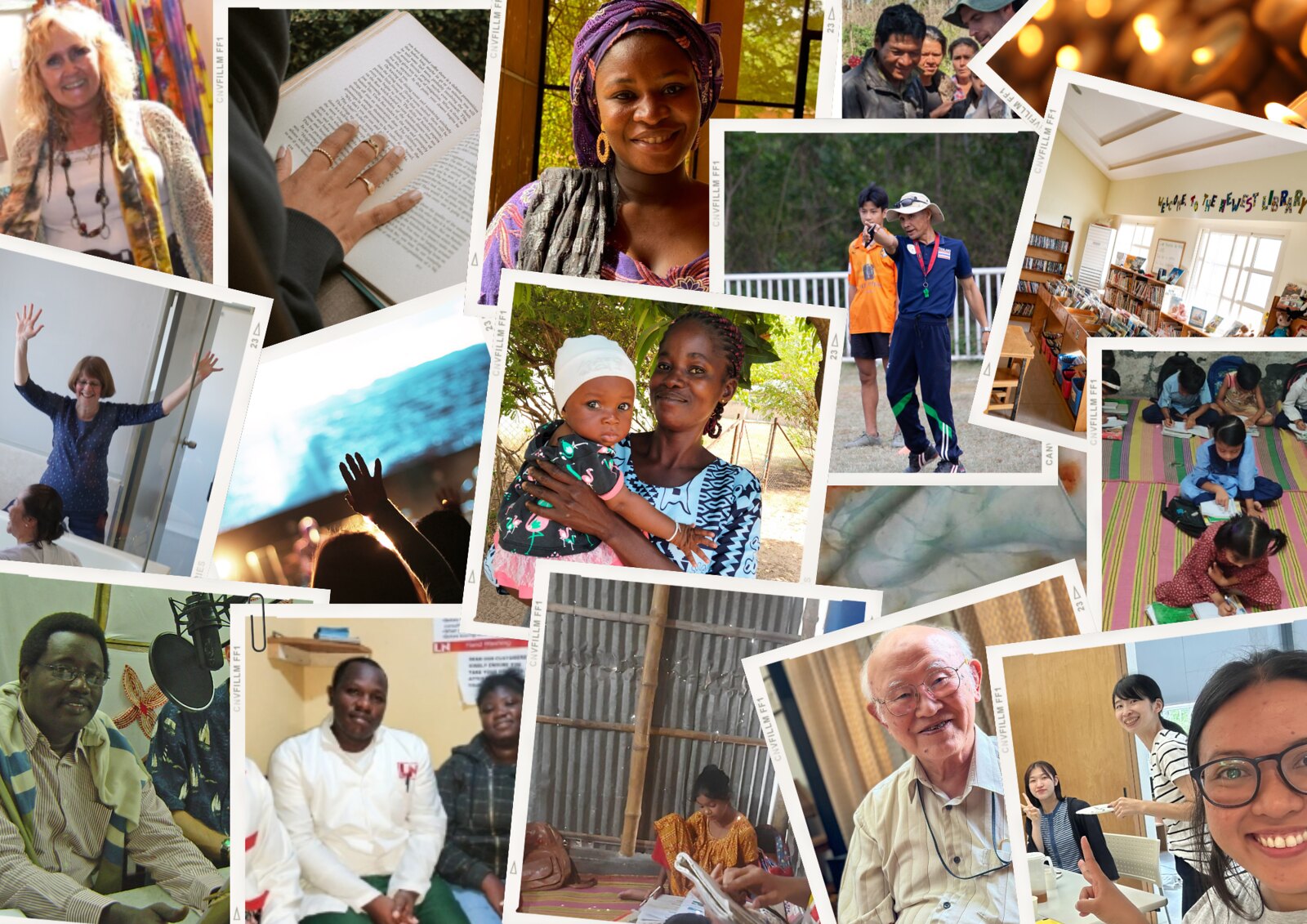We do whatever it takes to start new churches
By Shodankeh Johnson | West African Office in West Africa

When going into a village, town or city to share the good news of Christ and plant a new church, it is important to first look for a “person of peace.” This is someone who is open to the gospel. We normally try to engage them using the story method of Bible teaching. They may be going through some particular issue at that time – for example, there may be a problem with their family. So we focus on one particular element of the story first, something that’s especially relevant and helpful to them at that time.
This creates a bridge, and a relationship is built. Once the relationship is established, there is trust. And once there is trust, we can begin to tell God’s story, starting with creation. As a result, we’ve been able to start churches – a lot of churches – in every city in Sierra Leone.
Our team includes teachers, lawyers, medical people and others. And all of them are trained church planters. We identify a community’s biggest need, and then work to meet that need. At the same time, we plant a new church.
Once a group of village elders told us that they needed a secondary school. Because they didn’t have one, they had to send their teenage girls away to the city for their education. And, this was resulting in a number of these young girls returning home pregnant. In a situation like this, we ask the elders what resources the village has that might help them to solve the problem. They may say, “a dilapidated building” or “some unused land.”
Then we offer to bring in some labourers and provide teachers. The village may provide accommodation for them and maybe even their meals. Our teachers go in and start a school. They also make disciples and plant a church.
Almost 28,000 children are in school now because of our work. And we have also established trade schools for young adults. Everywhere that we have established a school, we have also planted a church. So far we have started about 2,000 churches and the average membership is 47.
Our agriculturalists give people seeds to plant and teach them a better way to reap a harvest. In the process, they tell their stories and start a new church. We also have a microfinance scheme. Typically we put together a group of six women who want to start a business, two of whom are Christians. We give each one a loan to help them get set up. When the non-Christians visit the Christian women in their homes, they see a difference and they ask about it. Eventually, many people come to the Lord; many lives are transformed. We also have lawyers who stand up for victims of rape or female genital mutilation or for women whose families are trying to take away their property.
We take a very wholistic approach to church planting and we do whatever it takes. Once I did a medical training in the US and met a dentist. I asked him if he would come to Sierra Leone and train some of my team to clean, fill and extract teeth. “You must be joking!” he said. “It has taken me seven years of training to become a dentist.”
Eventually, he spent 10 days teaching the team theory and did 10 days of practical training. So we now have people who can do dental work. It’s another need we can meet as we continue to serve God in establishing his Church here.
This article originally appeared in AfriGo's May 2016 issue.
The son of a Methodist father and a Muslim mother, Shodankeh Johnson serves with New Harvest Global Ministries in Sierra Leone. Making use of the principles of DMM (Disciple Making Movements), he and his team have planted some 2,000 churches.
Related stories

Young women from rural Peru find discipleship and belonging in the city
As rural young women move to Peru’s cities for study or work, they face a world full of pressure, distraction, and isolation. Mission worker Lizzie is walking alongside them; offering friendship, discipleship, and a reminder of their worth in Jesus.

In Carrie’s classroom, Jesus is shaping hearts and minds for his kingdom
When mission workers with young families leave their home country, a major concern is how their children will get on. While the parents are out serving, the kids need stability, education, and spiritual nurturing. That’s where teachers like Carrie come in. Originally from Kansas, Carrie now teaches at a mission school in Liberia, part of Dakar Academy in Senegal, shaping young hearts and minds for God’s kingdom.

Ken & Gwen Baker have spent 40+ years engaged in mission work and adventures with God
Ken and Gwen Baker have retired after 43 years of faithful service with SIM — a life devoted to God, to their teammates, and to equipping others for ministry. They spent decades planting churches in West Africa, fostering intercultural ministry, and shaping mission training that continues to impact workers worldwide. As they step into a new season of life, their story serves as a powerful reminder of how God uses ordinary people, willing to follow his call, to build His church and transform lives.

